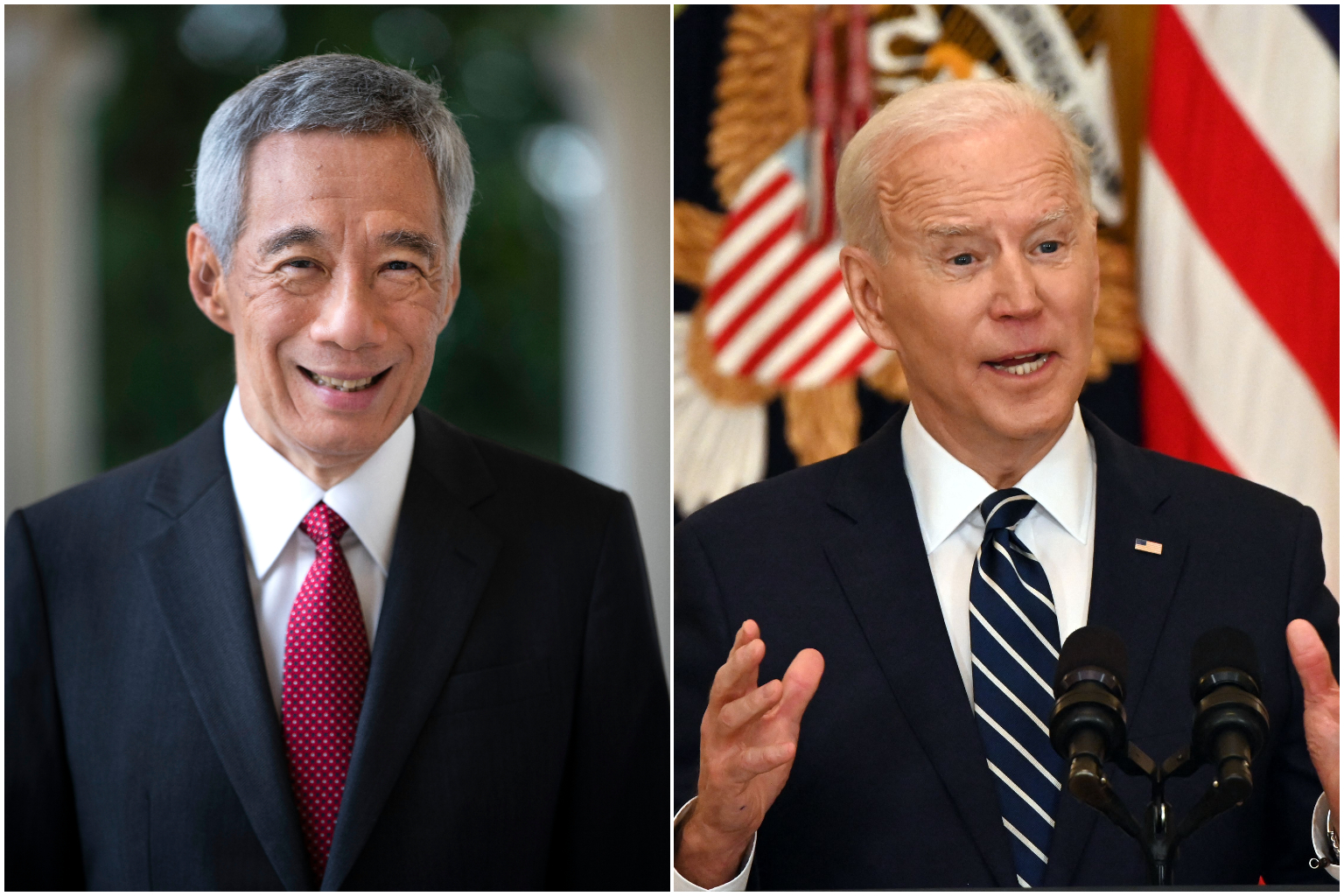Biden to host 40 world leaders to virtual climate summit, PM Lee accepts invitation
Sign up now: Get ST's newsletters delivered to your inbox

The two-day meeting is meant to mark Washington's return to the front lines of the fight against man-made climate change.
PHOTOS: MCI, AFP
WASHINGTON - President Joe Biden has invited 40 world leaders to a live streamed Leaders Summit on Climate that he will host on April 22 and 23.
The invitees include Singapore Prime Minister Lee Hsien Loong, Russian President Vladimir Putin, and Chinese President Xi Jinping.
"The Leaders Summit… will underscore the urgency - and the economic benefits - of stronger climate action," the White House said in a statement.
"In recent years, scientists have underscored the need to limit planetary warming to 1.5 deg C in order to stave off the worst impacts of climate change" the White House said. "A key goal… will be to catalyse efforts that keep that 1.5-deg goal within reach."
"The Summit will also highlight examples of how enhanced climate ambition will create good paying jobs, advance innovative technologies, and help vulnerable countries adapt to climate impacts."
Before the summit, the United States will announce "an ambitious 2030 emissions target as its new Nationally Determined Contribution under the Paris Agreement", the statement said.
PM Lee has accepted Mr Biden's invitation to participate in the summit, Singapore's Ministry of Foreign Affairs said in a press statement on Saturday.
"Climate change is an existential threat to mankind, and requires a concerted and sustained global response," it said, adding: "As a small island state, Singapore is particularly vulnerable to the effects of climate change."
"Singapore welcomes the US' leadership in convening this summit, which will be an important milestone on the road to the United Nations Climate Change Conference (COP-26) in November in Glasgow," it said.
Climate change is an area the US believes is possible to do business with China and Russia, despite deep differences among them on a host of other issues.
Next month's summit - which begins on Earth Day - will be the first public test of whether such engagement is possible.
The Biden administration is also facing pressure from progressive groups to announce a goal to slash US carbon emissions in half by 2030. Anything short of that would undermine the goal of preventing temperatures from rising more than 1.5 deg C.
Such a goal would trigger the fundamental shift away from fossil fuels in energy generation and transportation, and the administration hopes by creating jobs in renewables sector, it will offset job losses in the fossil fuel sector which still accounts for the bulk of the United States' energy mix; only 11 per cent of energy in the US comes from renewable sources.
The aggressive commitment is seen as a move to assume global leadership and challenge other nations to go public with enhanced commitments to reduce greenhouse gas emissions.
Former President Donald Trump, a climate change sceptic - some say outright denier - had withdrawn the US from its commitments, saying the Paris Agreement would kill American jobs.
Mr Biden's climate team is led by former Secretary of State John Kerry, and Ms Gina McCarthy, a former Environmental Protection Agency (EPA) Administrator.
At a March 23 ministerial meeting of over 30 countries, Mr Kerry sent a strong signal of US leadership on the climate crisis, saying: "Climate predictions have routinely come true, but bigger and faster than predicted. We continue to be surprised by the pace and intensity of warming."
"It is more urgent than ever that we all use this decade to significantly reduce emissions."
At least 10 analyses have been made public or are due to be released in the next few weeks by groups like America Is All In, Energy Innovation and the Environmental Defence Fund, on pathways to a 50 per cent cut in emissions by 2030, the environmental and energy journal E&E News reports.
While Mr Biden is using an ambitious commitment to return to a leadership role in battling climate change and leverage action internationally, it is a political gamble for him domestically.
The coal industry alone has lost tens of thousands of jobs, many in rural areas.
In theory, a coal worker may be retrained, but the question remains whether a solar power company will want to hire a 50-year-old coal miner, said Dr Paul Sullivan, who teaches energy and environmental security at Johns Hopkins University.
"A lot of people are pushing for a shift to renewable energy quickly, but there is going to be a significant impact," Dr Sullivan said. "It is vital to have a just transition."


